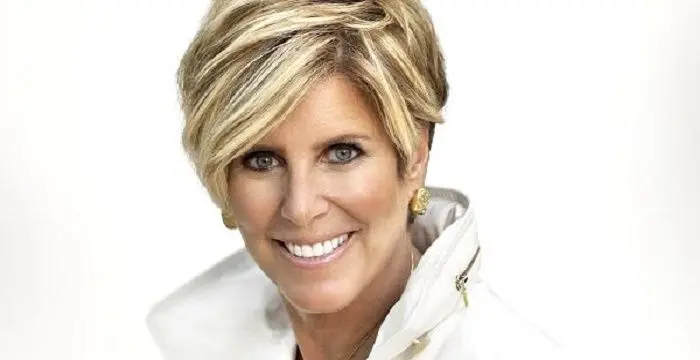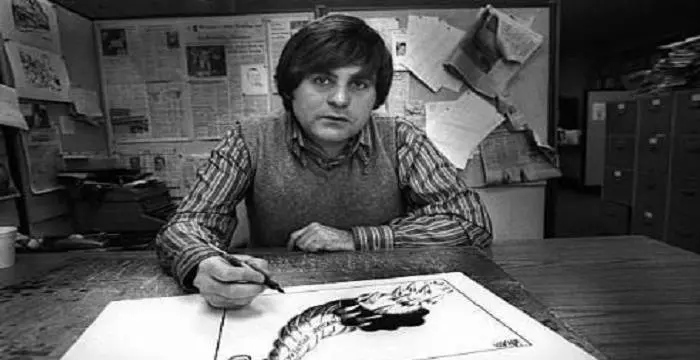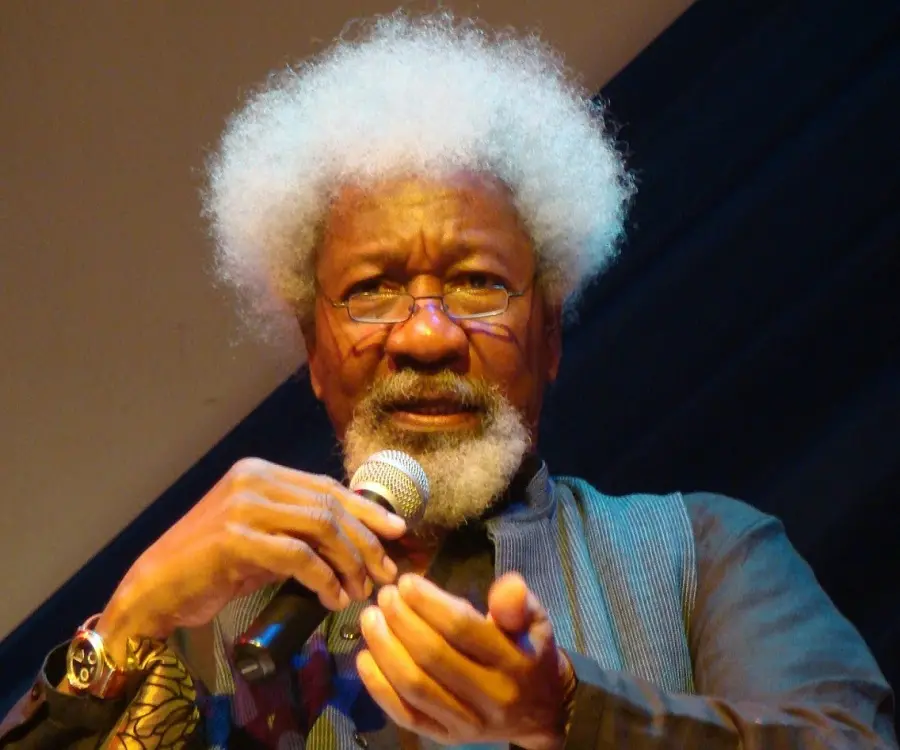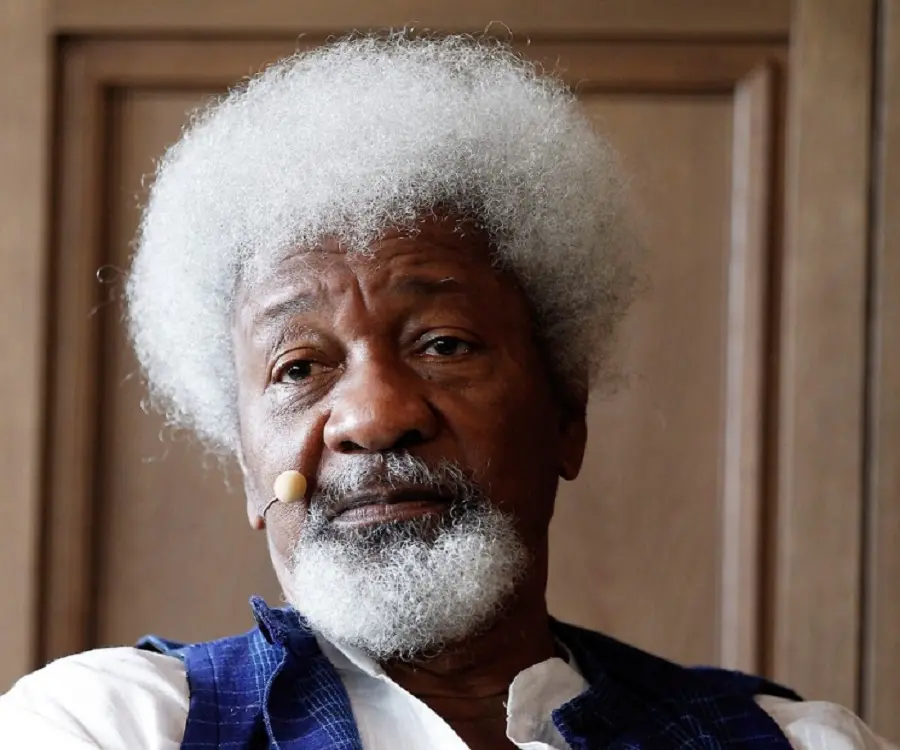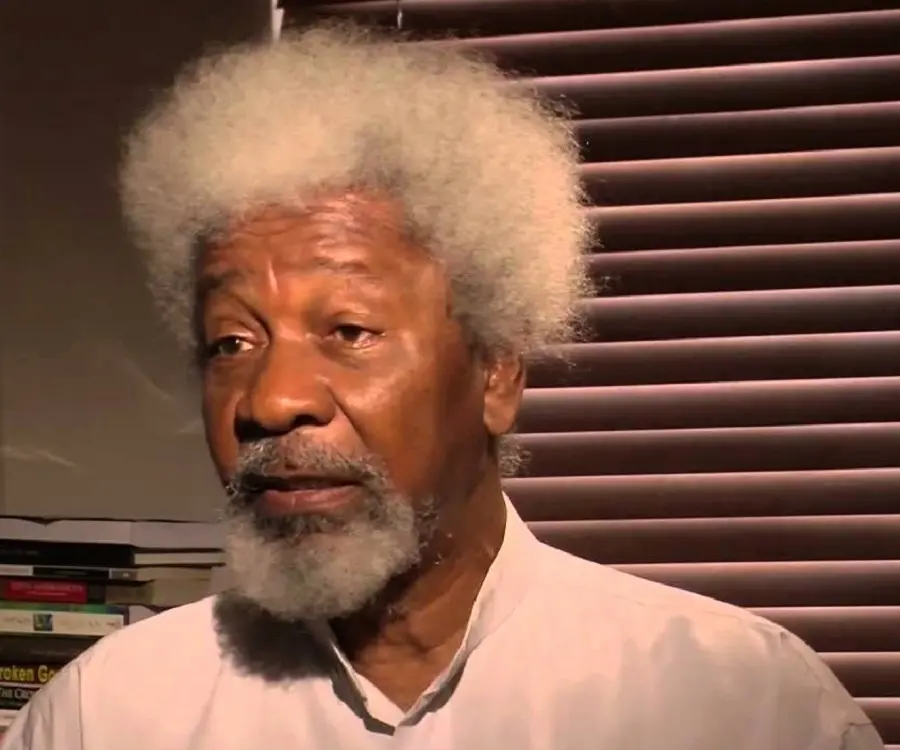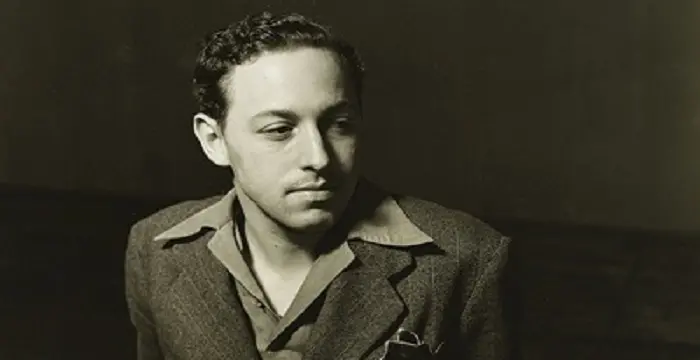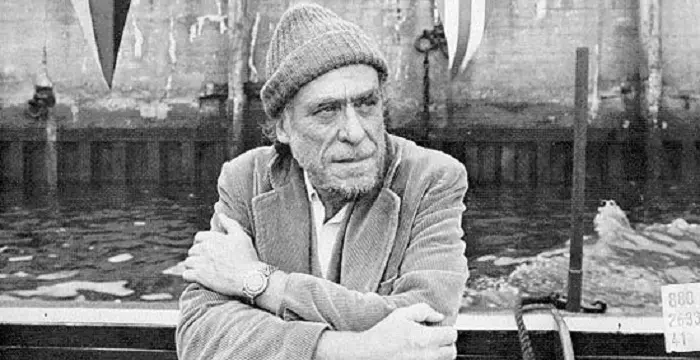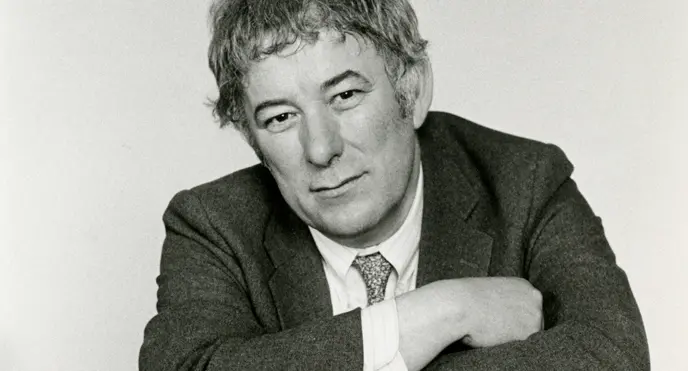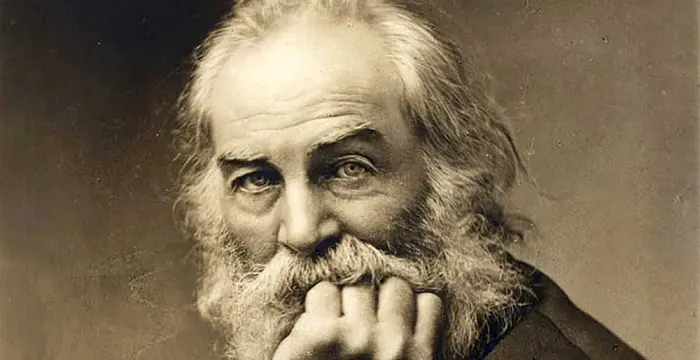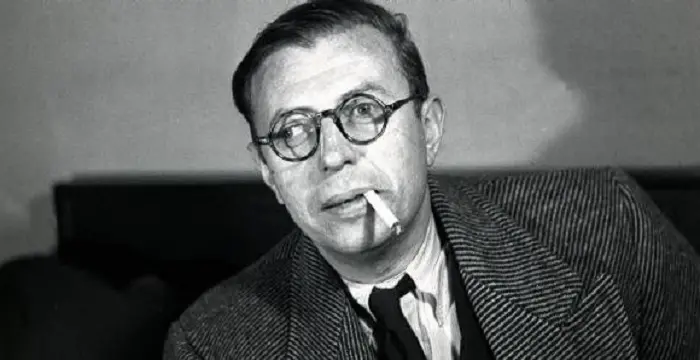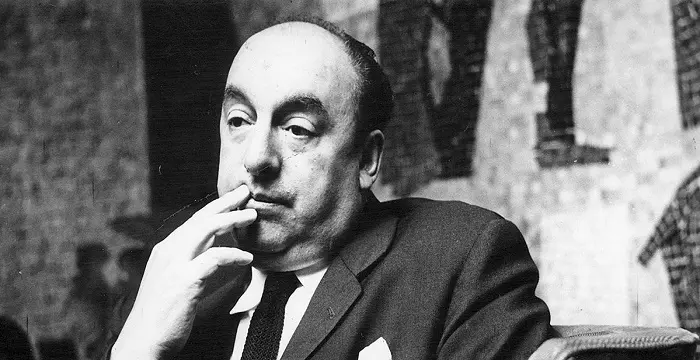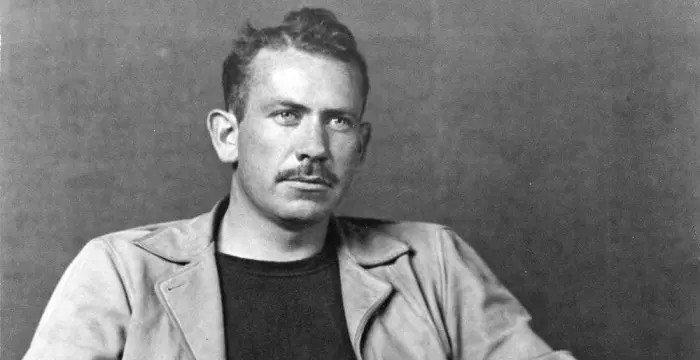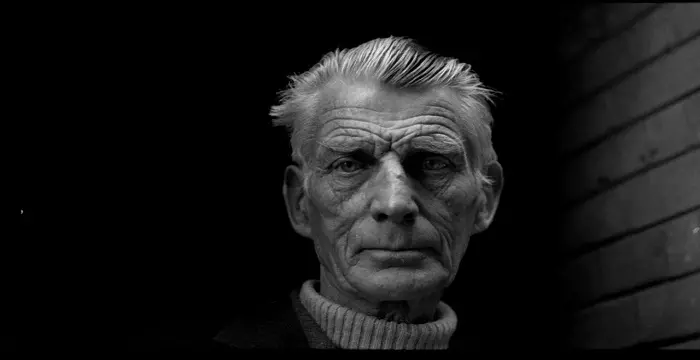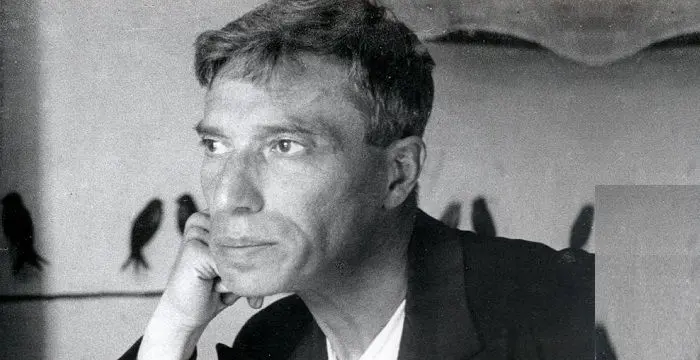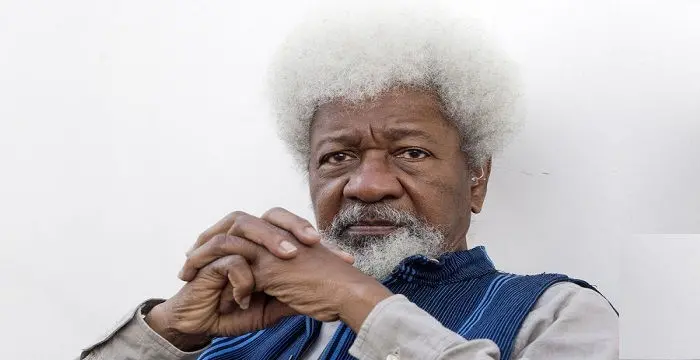
Wole Soyinka - Author, Career and Family
Wole Soyinka's Personal Details
Wole Soyinka is a Nigerian writer, poet and play writer
| Information | Detail |
|---|---|
| Birthday | July 13, 1934 |
| Nationality | Nigerian |
| Famous | Nobel Laureates In Literature, Democrats, Writers, Poets, Playwrights, Author |
| Ideologies | Democrats |
| Known as | Akinwande Oluwole Babatunde Soyinka |
| Founder / Co-Founder |
|
| Birth Place | Abeokuta |
| Gender | Male |
| Father | Samuel Ayodele Soyinka |
| Mother | Grace Eniola Soyinka |
| Sun Sign | Cancer |
| Born in | Abeokuta |
| Famous as | Author, Poet, Playwright |
// Famous Author
Joyce Meyer
Joyce Meyer is a Christian author and speaker. This biography provides detailed information about her childhood, life, achievements, works & timeline
Suze Orman
Suze Orman is an American television host, financial advisor, author and motivational speaker, famous for her ‘The Suze Orman Show’ on CNBC. This biography profiles her childhood, life, career, works, achievements and timeline.
Robert Graysmith
Robert Graysmith is an author best identified for his works on the ‘Zodiac Killer case’. Check out this biography to know about his childhood, family life, achievements and fun facts about him.
Wole Soyinka's photo
Who is Wole Soyinka?
One of Africa’s greatest writers, Wole Soyinka is the first African to be awarded the prestigious Nobel Prize in Literature. He is regarded as one of the finest poetical playwrights and has been imprisoned countless times for his outspoken views on the Nigerian government. He has been a controversial figure in Nigerian politics and has spent long periods of his life in exile. Soyinka has criticized several Nigerian military dictators, particularly late General Sanni Abacha, and has also condemned the tyrannical regime of Mugabe in Zimbabwe. His plays deal with a variety of themes, ranging from comedy to tragedy and from political satire to power struggles of the indigenous people. He played an active role in Nigeria’s political history and its struggle with British colonization. He is also recognised as one of the masters of dramatics and theatre, who presented crucial political issues through this literary works. Some of his most influential works include, ‘A dance of the Forests’, ‘Aké: The Years of Childhood’, ‘The Lion and the Jewel’ and ‘The Interpreters’. His recent book, ‘Of Africa’, is a path breaking revelation of Africa’s history, culture and heritage.
// Famous Writers
Joyce Meyer
Joyce Meyer is a Christian author and speaker. This biography provides detailed information about her childhood, life, achievements, works & timeline
Temple Grandin
Temple Grandin is a well-known American writer, autistic activist and animal expert. This biography profiles her childhood, life, achievements, career and timeline
Tennessee Williams
Tennessee Williams was one of the greatest playwrights of the 20th century. This biography of Tennessee Williams provides detailed information about his childhood, life, achievements, works and timeline.
Childhood & Early Life
Wole Soyinka was born in the city of Abeokuta, Nigeria, which was then a part of the British Empire.
He was privileged to have access to radio and electricity at home as his father, Samuel Ayodele Soyinka’s held prominent position as an Anglican minister and headmaster.
He attended St. Peters Primary School and later, enrolled at the Abeokuta Grammar School, where his talent in literary composition was recognised and he won many prizes.
In 1952, he graduated from Government College and then studied English literature, Greek and Western history at the University College in Ibadan. In his last year at University, he worked on a short play for the Nigerian Broadcasting Service.
In 1954, he moved to England and continued to pursue his education at the University of Leeds, under the guidance of Wilson Knight. Here, he became the editor of ‘The Eagle’, the University magazine.
Career
In 1957, his poems ‘The Immigrant’ and ‘My next Door Neighbour’ were published in the ‘Black Orpheus’, a Nigerian magazine. The same year, his play ‘The Invention’ was produced at the Royal Court Theatre, London.
In 1958, he wrote the play, ‘The Swamp Dwellers’ and worked as a play reader at the Royal Court Theatre.
After he received a Rockefeller Research Fellowship to pursue research on African theatre, he returned to Nigeria and produced political satires viz. ‘The Trials of Brother Jero’ and ‘A Dance of The Forest’.
In 1960, he established the ‘Nineteen-Sixty Masks’, an amateur acting communal, to which he devoted considerable time over the years.
In 1962, he joined the department of English at the Obafemi Awolowo University, where he discussed current affairs and spoke out against government censorship. The same year, his essay, ‘Towards a True Theatre’ was published.
In 1964, he resigned from his university position as a protest against the pro-governmental policies imposed by university authorities. The same year he authored two of his dramatic pieces; ‘Before the Blackout’, ‘Kongi’s Harvest’ and a BBC radio play ‘The Detainee’.
After a brief period of imprisonment, he was released in 1969, following which he moved to France and authored ‘The Bacchae of Euripides’ and his collection of poems tilted ‘Poems from Prison’.
From 1970 to 1973, he produced many plays, travelled to the United States for the premiere of his play and wrote a collection of poems titled ‘A shuttle in the Crypt’.
In 1988, he became the Professor of African Studies and Theatre at Cornell University and the same year his collection of poems ‘Mandela's Earth, and Other Poems’ and collection of essays ‘Art, Dialogue and Outrage: Essays on Literature and Culture’ were published.
In 1991, his radio play ‘A Scourge of Hyacinths’ was transmitted by the BBC African service and the following year ‘From Zia with Love’ premiered in Sienna, Italy.
In 2012, he authored the book ‘Of Africa’, in which he gave a magnificent account of Africa’s most challenging issues, its culture and history.
Controversies & Imprisonment
In 1965, he was arrested by the Nigerian government for allegedly holding a radio announcer at gunpoint to broadcast false election results. A wide campaign by the international community of writers resulted in his release after three months.
He became politically active and set up an unofficial meeting with military governor, Chukwuemeka Odumegwu Ojukwu in 1967 to stop the Civil War, after which he went into hiding.
He was accused of supporting the Biafrans, inhabitants of Biafra and as a result the Nigerian government imprisoned him for 22 months during the Civil War.
Despite being refused writing material during his imprisonment, it is believed that he managed to author numerous poems and notes, criticizing the Nigerian government. His plays were also screened in New York, while he was still in prison.
He was released along with other political activists by the end of 1969 after the end of the civil war that resulted in the defeat of the Biafrans.
In 1994, during the regime of General Sani Abacha he escaped to Paris as he feared arrest for advocating democracy in Nigeria. He later moved to U.S. His self-exile ended in 1998 after Sani Abacha’s death.
Major Works
‘A Dance of the Forests’, one of his best works was presented at the Nigerian Independence Day celebrations in 1960. It is regarded as one his most influential plays that proposes a new vision for Africa and was later, published by the Oxford University Press in London and New York. The play was also performed in Paris and Dakar.
His autobiographical book, ‘Ake: The Years of Childhood’ received great critical acclaim and won the prestigious 1983 Anisfield-Wolf Book Award.
Awards & Achievements
In 1972, he received the ‘Honoris Causa’ doctorate from the University of Leeds.
In 1986, he was awarded the Nobel Prize in Literature and he became the first and only Nigerian and Second African to achieve this feat. The same year he was honored with the Agip Prize in Literature.
In 1993, he received an honorary doctorate from Harvard University.
In 1994, he was appointed as the UNESCO Goodwill Ambassador for the Promotion of African culture, human rights, freedom of expression, media and communication.
In 2009, he was conferred the Academy of Achievement Golden Plate Award.
Personal Life & Legacy
His first two marriages failed and in 1989, he got married, for a third time, to Doherty Folake, a Nigerian.
// Famous Poets
Charles Bukowski
Charles Bukowski was a German-born American novelist, short story writer and poet. With this biography, learn in details about his childhood, life, works, career and timeline
Seamus Heaney
Nobel Laureate Seamus Heaney was an Irish poet, playwright and translator. Know about his profile, childhood, life and timeline in the biography below.
Walt Whitman
Walt Whitman was an American poet, journalist and humanist. Read this brief biography to find more on his life & timeline.
Wole Soyinka's awards
| Year | Name | Award |
|---|---|---|
Other | ||
| 1990 | Benson Medal from Royal Society of Literature | |
| 2009 | Academy of Achievement Golden Plate Award | |
| 0 | ||
| 0 | 1983 - Anisfield-Wolf Book Award | |
| 0 | 1986 - Nobel Prize for Literature | |
| 0 | 1986 - Agip Prize for Literature | |
Wole Soyinka biography timelines
- // 1952In 1954, he moved to England and continued to pursue his education at the University of Leeds, under the guidance of Wilson Knight. Here, he became the editor of ‘The Eagle’, the University magazine.
- // 1957In 1957, his poems ‘The Immigrant’ and ‘My next Door Neighbour’ were published in the ‘Black Orpheus’, a Nigerian magazine. The same year, his play ‘The Invention’ was produced at the Royal Court Theatre, London.
- // 1958In 1958, he wrote the play, ‘The Swamp Dwellers’ and worked as a play reader at the Royal Court Theatre.
- // 1960In 1960, he established the ‘Nineteen-Sixty Masks’, an amateur acting communal, to which he devoted considerable time over the years.
- // 1960‘A Dance of the Forests’, one of his best works was presented at the Nigerian Independence Day celebrations in 1960. It is regarded as one his most influential plays that proposes a new vision for Africa and was later, published by the Oxford University Press in London and New York. The play was also performed in Paris and Dakar.
- // 1962In 1962, he joined the department of English at the Obafemi Awolowo University, where he discussed current affairs and spoke out against government censorship. The same year, his essay, ‘Towards a True Theatre’ was published.
- // 1964In 1964, he resigned from his university position as a protest against the pro-governmental policies imposed by university authorities. The same year he authored two of his dramatic pieces; ‘Before the Blackout’, ‘Kongi’s Harvest’ and a BBC radio play ‘The Detainee’.
- // 1965In 1965, he was arrested by the Nigerian government for allegedly holding a radio announcer at gunpoint to broadcast false election results. A wide campaign by the international community of writers resulted in his release after three months.
- // 1967He became politically active and set up an unofficial meeting with military governor, Chukwuemeka Odumegwu Ojukwu in 1967 to stop the Civil War, after which he went into hiding.
- // 1968After a brief period of imprisonment, he was released in 1969, following which he moved to France and authored ‘The Bacchae of Euripides’ and his collection of poems tilted ‘Poems from Prison’.
- // 1969He was released along with other political activists by the end of 1969 after the end of the civil war that resulted in the defeat of the Biafrans.
- // 1970 To 1973From 1970 to 1973, he produced many plays, travelled to the United States for the premiere of his play and wrote a collection of poems titled ‘A shuttle in the Crypt’.
- // 1972In 1972, he received the ‘Honoris Causa’ doctorate from the University of Leeds.
- // 1986In 1986, he was awarded the Nobel Prize in Literature and he became the first and only Nigerian and Second African to achieve this feat. The same year he was honored with the Agip Prize in Literature.
- // 1988In 1988, he became the Professor of African Studies and Theatre at Cornell University and the same year his collection of poems ‘Mandela's Earth, and Other Poems’ and collection of essays ‘Art, Dialogue and Outrage: Essays on Literature and Culture’ were published.
- // 1989His first two marriages failed and in 1989, he got married, for a third time, to Doherty Folake, a Nigerian.
- // 1991In 1991, his radio play ‘A Scourge of Hyacinths’ was transmitted by the BBC African service and the following year ‘From Zia with Love’ premiered in Sienna, Italy.
- // 1994In 1994, during the regime of General Sani Abacha he escaped to Paris as he feared arrest for advocating democracy in Nigeria. He later moved to U.S. His self-exile ended in 1998 after Sani Abacha’s death.
- // 1994In 1994, he was appointed as the UNESCO Goodwill Ambassador for the Promotion of African culture, human rights, freedom of expression, media and communication.
- // 2009In 2009, he was conferred the Academy of Achievement Golden Plate Award.
- // 2012In 2012, he authored the book ‘Of Africa’, in which he gave a magnificent account of Africa’s most challenging issues, its culture and history.
// Famous Nobel Laureates In Literature
Seamus Heaney
Nobel Laureate Seamus Heaney was an Irish poet, playwright and translator. Know about his profile, childhood, life and timeline in the biography below.
Jean-Paul Sartre
Jean-Paul Sartre was a great existentialist philosopher of the 20th century. Check out this biography to know about his childhood, family life, achievements and other facts related to his life.
Pablo Neruda
Pablo Neruda was a Chilean poet, politician and Nobel laureate. Go through this biography to learn more about his profile, childhood, life and timeline.
John Steinbeck
John Steinbeck was a celebrated American writer famous for his novel, ‘The Grapes of Wrath’. Read on for detailed information about his childhood, profile, career and timeline
Samuel Beckett
Samuel Beckett was an Irish playwright, novelist, theatre director and poet. This biography profiles his childhood, life, works, achievements and timeline
Boris Pasternak
Boris Leonidovich Pasternak was a Russian novelist, poet and translator. This biography of Boris Pasternak provides detailed information about his childhood, life, writing career, achievements and timeline.
Wole Soyinka's FAQ
What is Wole Soyinka birthday?
Wole Soyinka was born at 1934-07-13
Where is Wole Soyinka's birth place?
Wole Soyinka was born in Abeokuta
What is Wole Soyinka nationalities?
Wole Soyinka's nationalities is Nigerian
What is Wole Soyinka ideologies?
Wole Soyinka's ideologies is Democrats
Which company or organization was founded by Wole Soyinka?
Wole Soyinka was the founder/co-founder of Drama Association of Nigeria
Who is Wole Soyinka's father?
Wole Soyinka's father is Samuel Ayodele Soyinka
Who is Wole Soyinka's mother?
Wole Soyinka's mother is Grace Eniola Soyinka
What is Wole Soyinka's sun sign?
Wole Soyinka is Cancer
How famous is Wole Soyinka?
Wole Soyinka is famouse as Author, Poet, Playwright

